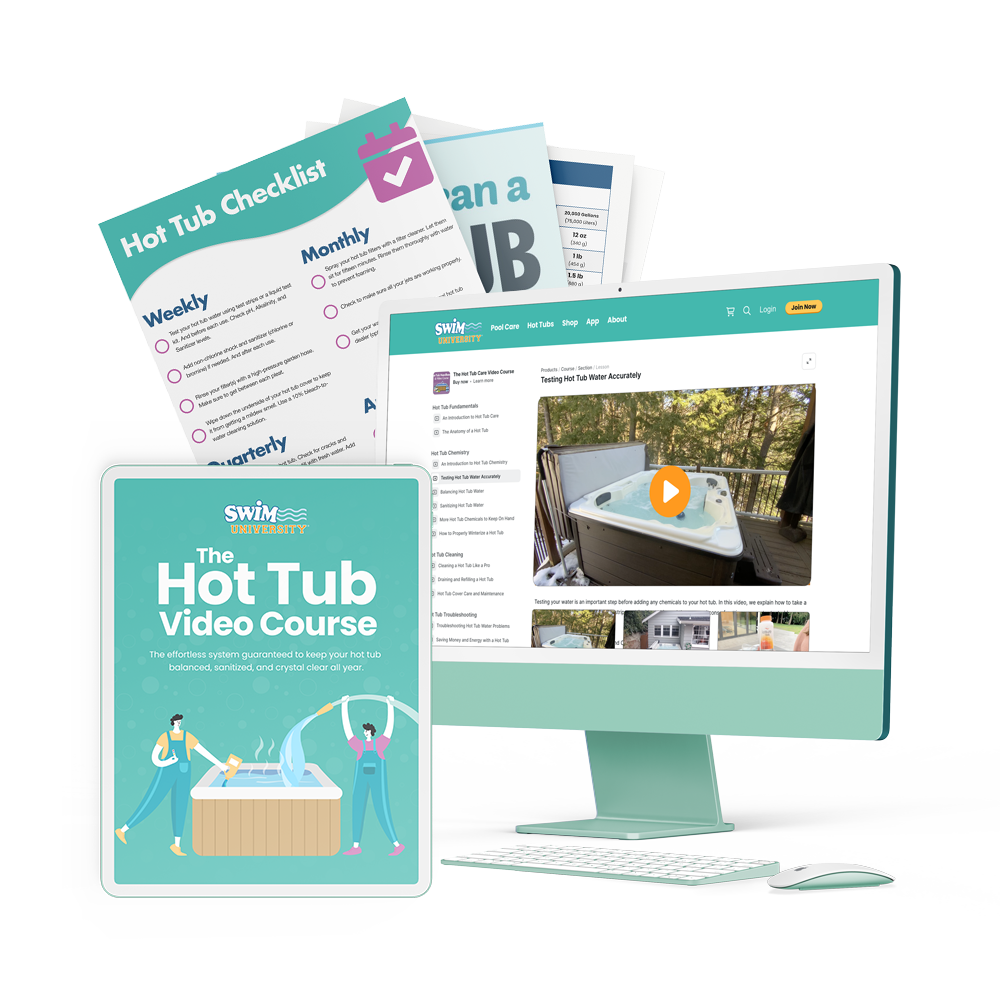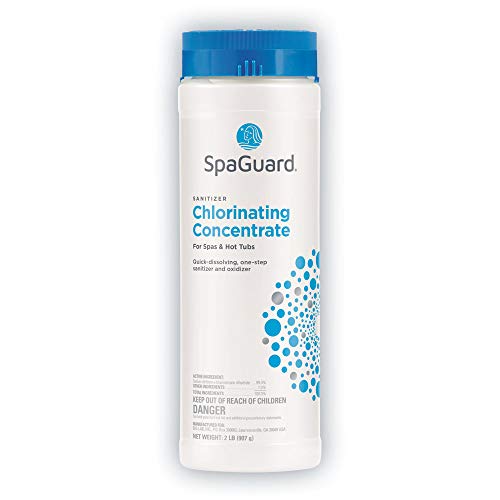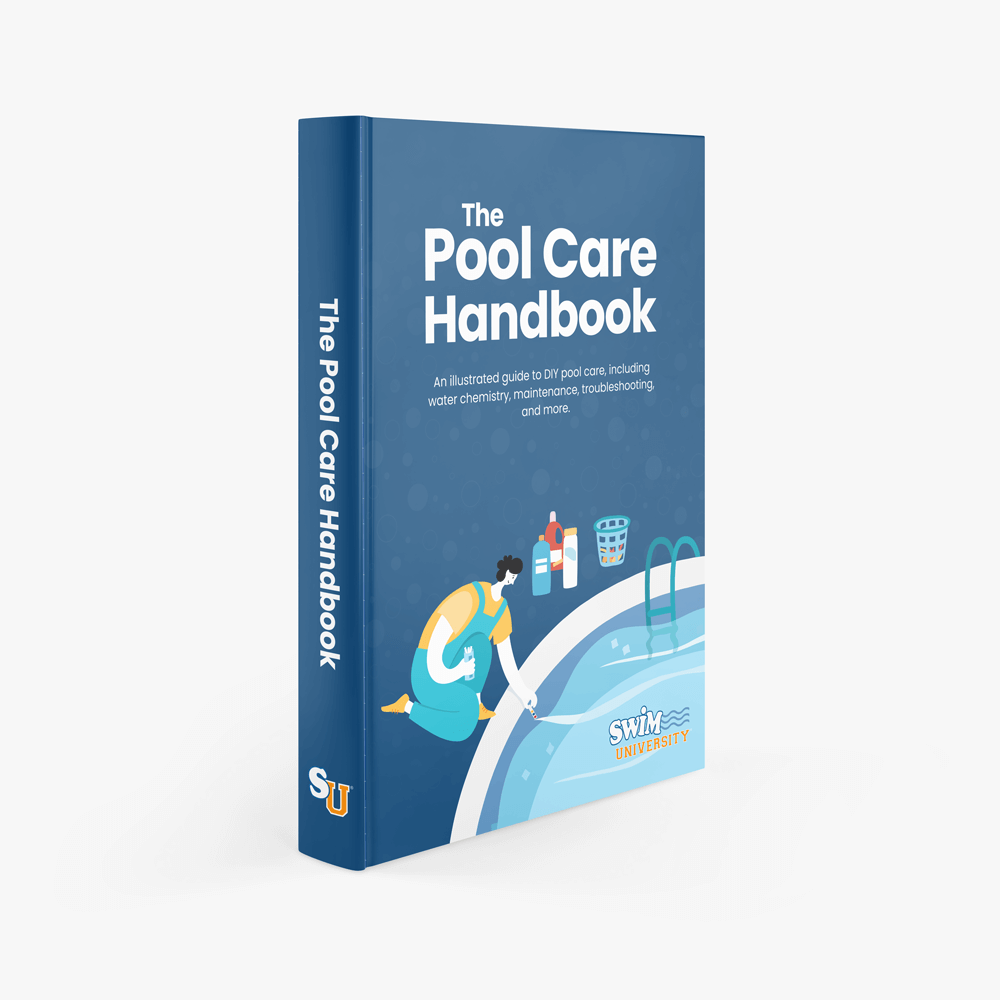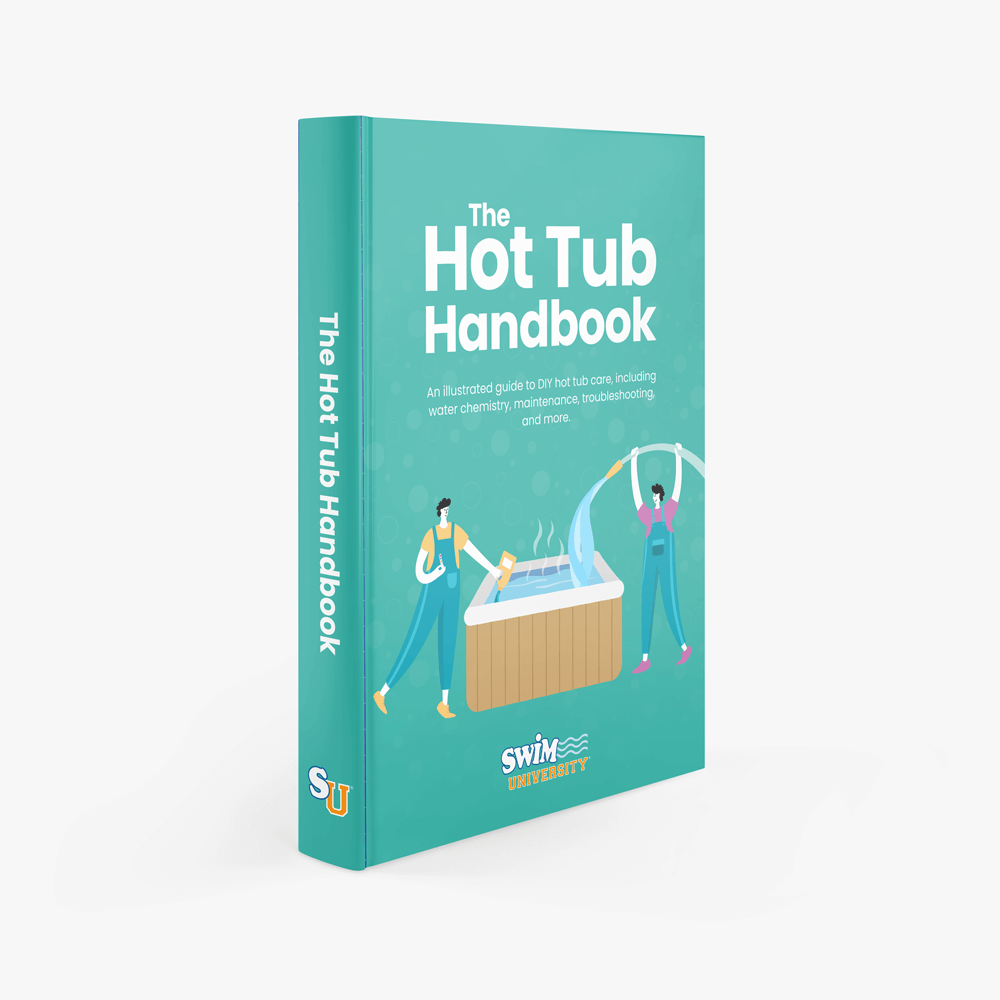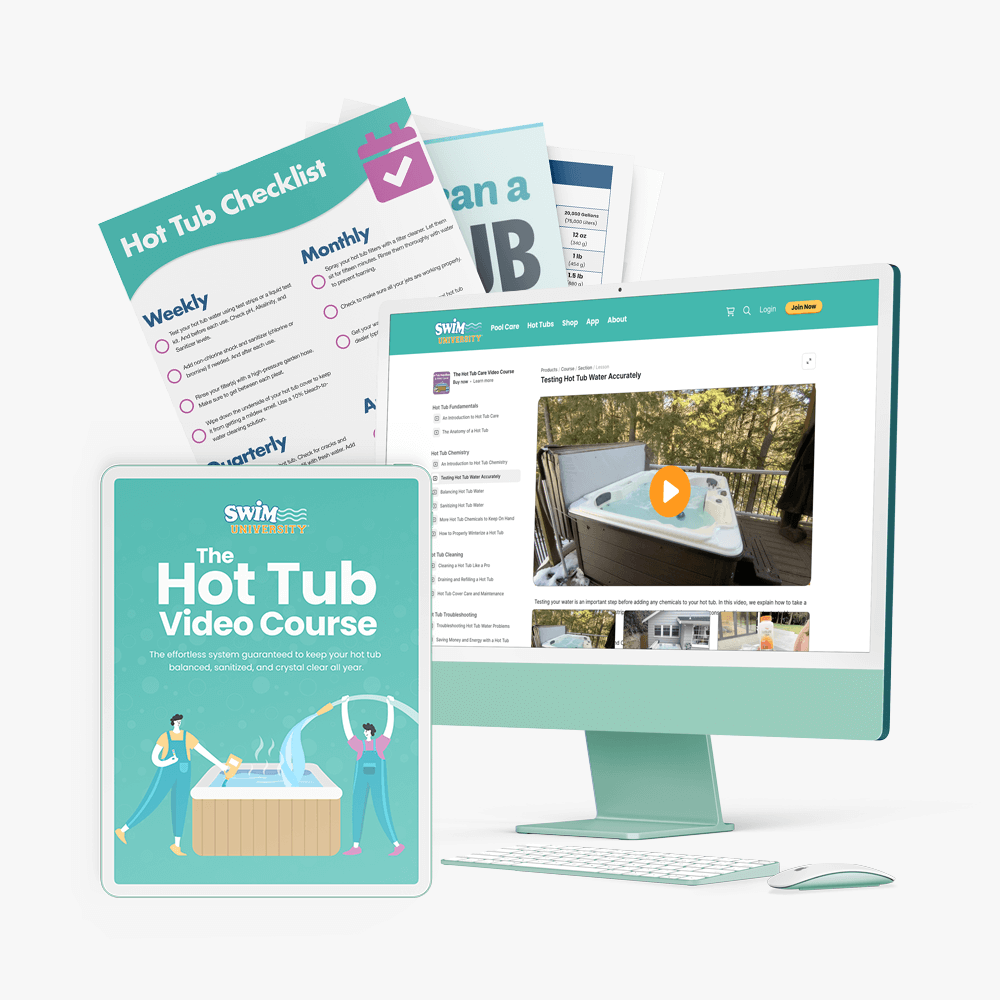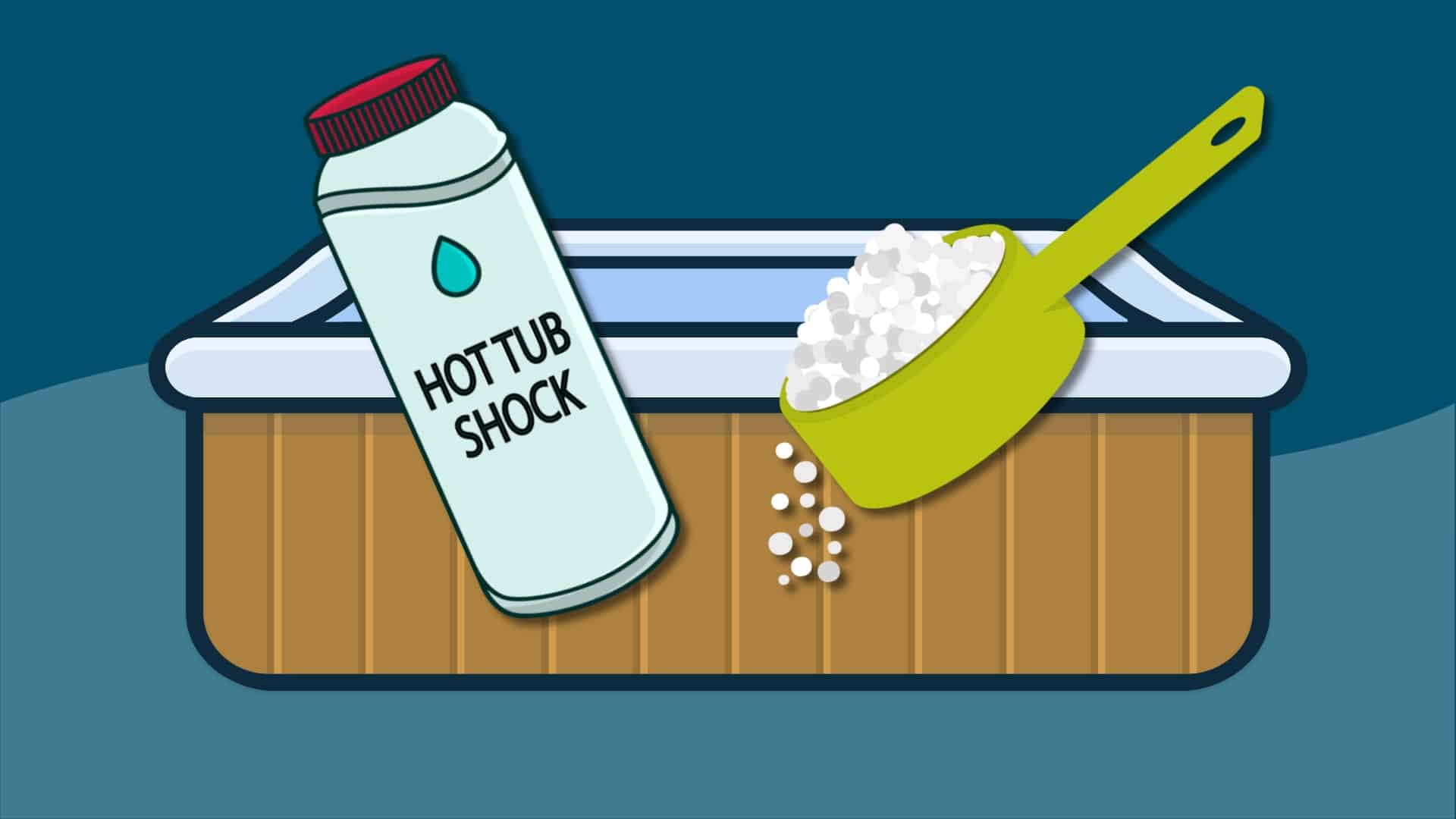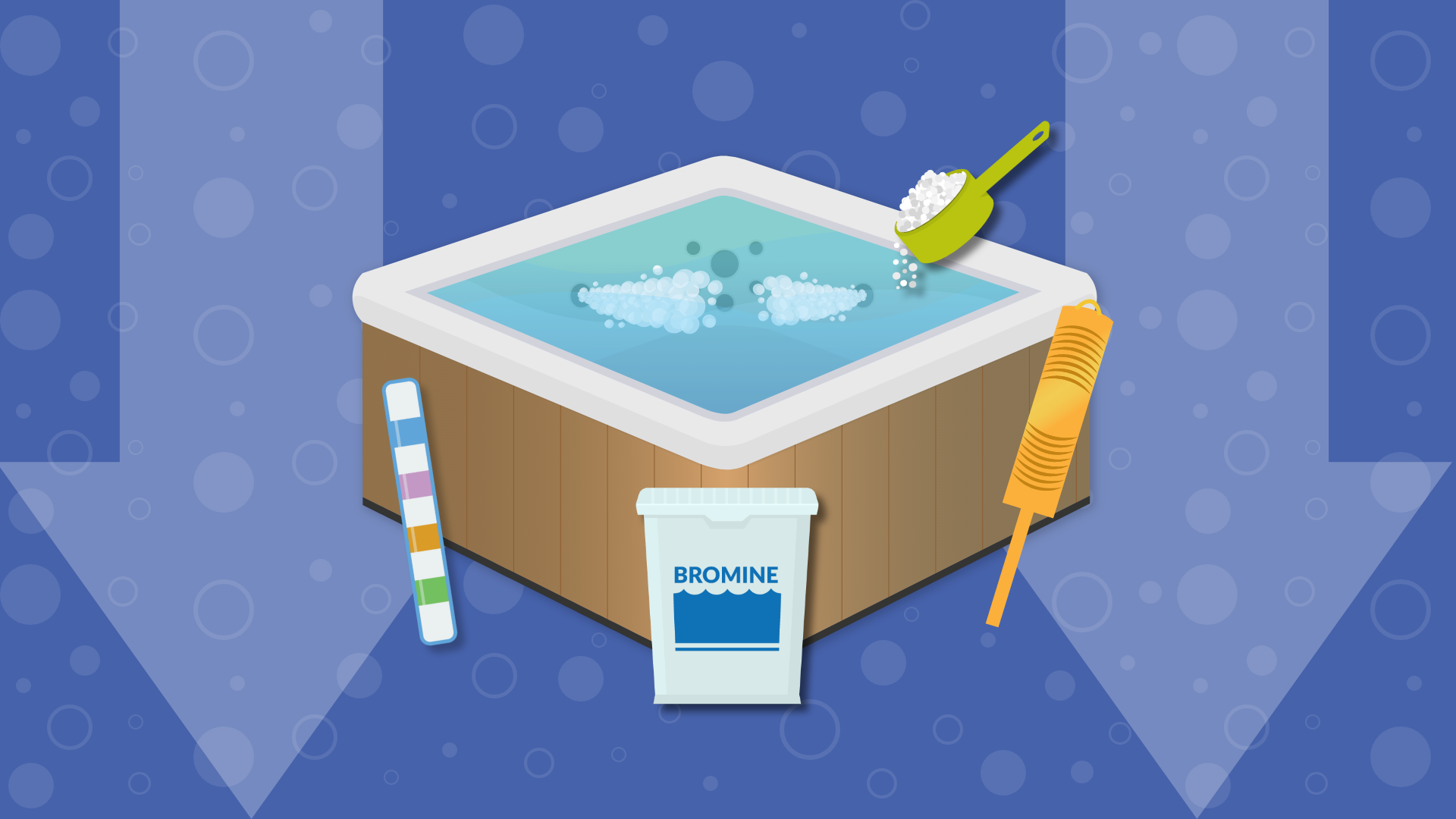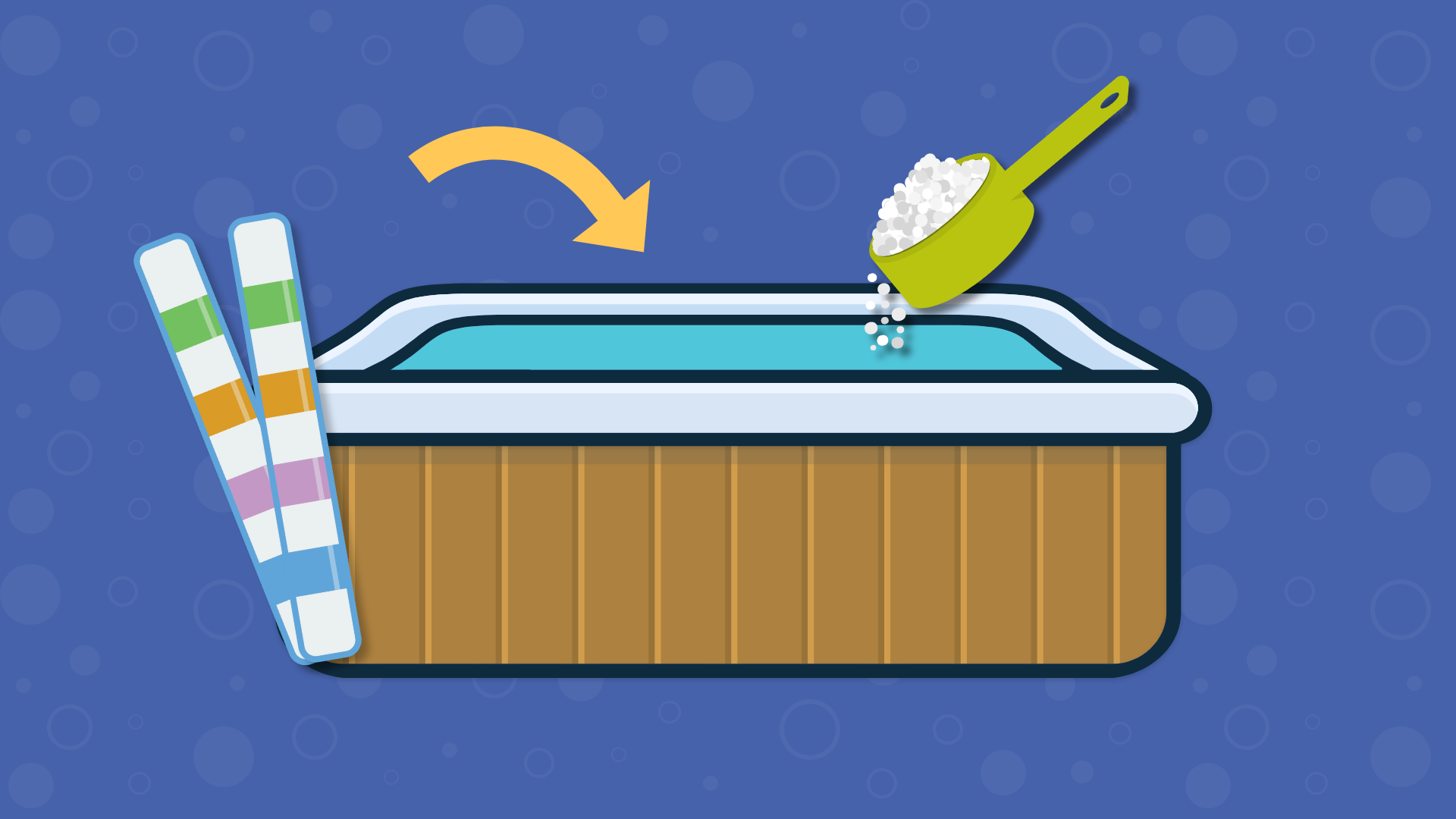Bromine Hot Tub Maintenance 101
Using bromine in your hot tub is actually a lot easier than using chlorine. Bromine is more stable at higher temperatures and tends to last longer in the water. But it only works well if you know when to add it to your hot tub and what other chemicals you need to add with it.
So here’s a quick guide on how to use bromine in a hot tub.
My fool-proof system for keeping any hot tub clean and clear at all times. Our course covers every type of hot tub, including portable spas, inflatable hot tubs, inground hot tubs, swim spas, and more. This is the LAST and ONLY hot tub guide you'll need.
Table of Contents
What’s The Difference Between Using Bromine Vs Chlorine?
Both chlorine and bromine kill contaminants and keep your water sanitized. The biggest difference is how they do it.
Hot Tub Chlorine
Free chlorine oxidizes contaminants by invading them and destroying them from the inside out. As the chlorine gets used up, it turns into combined chlorine, a.k.a. chloramines. And the more chloramines you have, the less effective your chlorine will be at sanitizing your water.
Chloramines are also the reason you may notice a nasty, chlorine-like smell in your hot tub.
Chlorine is an effective sanitizer. If you plan to use it, your chlorine levels should be between 1 and 3 ppm (parts per million). This is a bit lower than bromine.
This granular, stabilized chlorine is fast-acting and quick-dissolving. You can add it directly to your hot tub water. Because this product contains CYA (stabilizer), it's best used in outdoor hot tubs that are exposed to UV rays.
Chlorine also breaks down quickly by UV rays. But most chlorine products contain cyanuric acid (CYA), also known as chlorine stabilizer. This helps protect it against the sun. However, too much cyanuric acid buildup in a tub can reduce the effectiveness of your sanitizer levels.
Hot Tub Bromine
Bromine, on the other hand, ionizes contaminants, forcing the chemical bonds of pollutants to break apart. Unlike chlorine, a lot of the bromine will remain active and working in your water, even after combining with contaminants. And you’ll never get that chlorine-like smell.
Because bromine is not as reactive as chlorine, it kills contaminants more slowly. But bromine is more stable, especially in hot water or if your pH levels fluctuate.
These slow-dissolving tablets are compatible with both brominators and floating dispensers, ensuring a steady release and long-lasting defense.
Just keep in mind that bromine breaks down under direct sunlight – so be sure to keep a cover on your hot tub.
Finally, hot tub water with bromine feels softer and gentler than water with chlorine, making it a popular choice for people with sensitive skin.
If you want more information, check out our guide on using chlorine vs bromine in your hot tub.
How To Add Bromine to a Hot Tub
Bromine comes in two common forms: bromine tablets and bromine granules.
Because it dissolves slowly, bromine tabs work really well in a floating dispenser. However, bromine tablets tend to dissolve too slowly to work in automatic, in-line chemical feeders. It usually takes 3 to 5 bromine tablets added once a week to a floating dispenser to sanitize your hot tub.
Just be sure to adjust the settings on your floater. And smaller floaters made for hot tubs or small swimming pools work best.
This durable dispenser floats continuously to effectively distribute chlorine or borine throughout your small pool or hot tub, featuring an adjustable flow and secure twist-lock cap for controlled release.
Bromine takes a while to build up in the water, and it can be hard to quickly raise your levels if they’re low. So if you’re using your hot tub for the first time or you’ve just filled it with fresh water, you’ll want to start by adding a bromine booster, a.k.a. sodium bromide.
After adding your sodium bromide, you’ll then add an oxidizer, a.k.a. non-chlorine shock, to the spa water. This will activate the bromide and convert it to an active bromine sanitizer. After that, you can start regularly using bromine tablets in a floater to keep your levels stable.
Also known as oxidizer, non-chlorine hot tub shock helps revitalize your chlorine or bromine so it can actively sanitize your water. Use an oxidizer at least once a week but ideally after each hot tub soak to keep your water sanitized.
What Other Hot Tub Chemicals Do You Need Besides Bromine?
You’ll need a few other chemicals to keep your water chemistry balanced:
- Alkalinity increaser: Increases total alkalinity, which helps stabilize your pH levels.
- pH increaser and pH decreased: helps your pH stay in range. Balanced pH helps prevent cloudy water, corrosion, and skin and eye irritation.
- Calcium Hardness Increaser: raises your calcium levels and helps protect your hot tub from corrosion and foaming.
You’ll also need the chemicals we mentioned before:
- Bromine tablets and a floating dispenser
- Bromine booster, a.k.a. sodium bromide
- An oxidizer, a.k.a. non-chlorine shock
Bromine Shock Treatments
The final chemical on this list is chlorine shock. Yes, CHLORINE shock. While you should never combine REGULAR chlorine and bromine as your hot tub sanitizer, you CAN use chlorine SHOCK in a bromine hot tub.
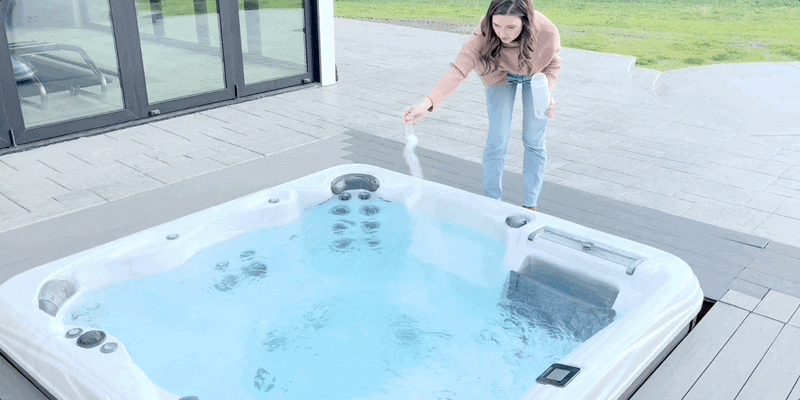
Chlorine shock is great to add to your water after a party or heavy hot tub use. Or you can add it weekly if you are noticing cloudy, murky water. Make sure your chlorine spa shock also contains an oxidizer.
A chlorine-based hot tub shock helps treat cloudy water, kill bacteria and algae, and remove contaminants after heavy hot tub usage. This formula also contains an oxidizer, which will help break apart any combined chlorine or bromine that's been used up in the water.
How to Test Your Water Levels (Including Bromine)
Your bromine levels should be between 3 and 5 PPM. If it drops a lot lower, your water isn’t sanitized. And if it goes much higher, your hot tub will be unsafe to use.
Before you test your water, you need to know how many gallons of water it holds.
Test your water once a week to make sure your levels are within range. Test strips are an easy, affordable way to monitor your chemistry. Just dip it in the water, wait about 15 seconds, and compare the strip to the packaging.
Tests for 7 important chemistries in seconds: Total Hardness, Total Chlorine, Total Bromine, Free Chlorine, pH, Total Alkalinity, and Cyanuric Acid.
For more accurate results, use a liquid test kit. If you want to help to remember the right ranges for your hot tub chemicals, be sure to grab our free hot tub cheat sheet.
How to Add Hot Tub Chemicals In The Correct Order
Be sure to wait at least 20 minutes between adding each chemical before retesting your water and moving on to the next step.
Keep your hot tub open and running with the jets on and the air blower off. And make sure your water is heated up to help the chemicals dissolve.
- Start by balancing your alkalinity. This will keep your pH from fluctuating.
- Adjust your pH levels with a pH descreaser or increaser. If you can’t get your pH and alkalinity levels to balance, be sure to check out our other video.
- If you’ve just added fresh water, add sodium bromide which is sometimes sold as bromine booster.
- Add oxidizer, a.k.a. non-chlorine shock. This will activate the sodium bromide and convert to active bromine sanitizer.
- Add your bromine floater. Retest your water weekly and refill your floater once a week with a few bromine tablets.
- Once a week, add non-chlorine or chlorine shock, depending on how your water looks and how often you use your hot tub. Chlorine shock will clear up murky water and quickly kill bacteria and contaminants. Non-chlorine shock, a.k.a. oxidizer, is a gentler option that helps reactivate your bromine.
How often should I put bromine in my hot tub?
Your hot tub’s bromine level should always be between 3-5 ppm (parts per million). The frequency at which you need to add bromine will vary based on how often you use your hot tub. This could mean adding bromine daily, every two to three days, or weekly.
How to Switch from Chlorine to Bromine in a Hot Tub
If you’re already using chlorine, switching to bromine is actually quite easy. Next time you drain your hot tub and change out the water, simply add bromine instead of chlorine.
Never mix chlorine or bromine chemicals outside of your hot tub.
Consider buying a fresh floating dispenser. Once you start using bromine, do not use chlorine pucks or granules. However, chlorine shock is okay.
Frequently Asked Questions About Bromine in a Hot Tub
We researched the questions hot tub owners asked the most and answered them here.
What does bromine do in a hot tub?
Bromine sanitizes the water in a hot tub by killing bacteria and other microorganisms. It’s a cousin to chlorine, but it doesn’t have the bleach-like smell.
What are the disadvantages of bromine in a hot tub?
Bromine’s disadvantages in a hot tub include potential skin and eye irritation, unpleasant odor, and higher cost compared to other sanitizing options.
Which is better for hot tubs, chlorine or bromine?
Both chlorine and bromine can effectively sanitize hot tubs. I personally like using bromine in my hot tub because it doesn’t have the chlorine smell. I can still use chlorine shock if needed.
Is it OK to get in a hot tub with high bromine?
I would avoid it. High bromine can cause skin and eye irritation. I would wait for the bromine to come down to between 3 and 5 ppm before getting in. Check out our guide on how to lower bromine in your hot tub.
3 More Ways We Can Help With Your Hot Tub
- Hot Tub Cheat Sheets (Free): Easy-to-use guides to help you keep your hot tub water balanced and sanitized.
- The Hot Tub Handbook: An illustrated guide to DIY hot tub care, including water chemistry, maintenance, troubleshooting, and more.
- The Hot Tub Care Course. You’ll get step-by-step videos and a step-by-step downloadable guide with everything you need to know about hot tub maintenance.

